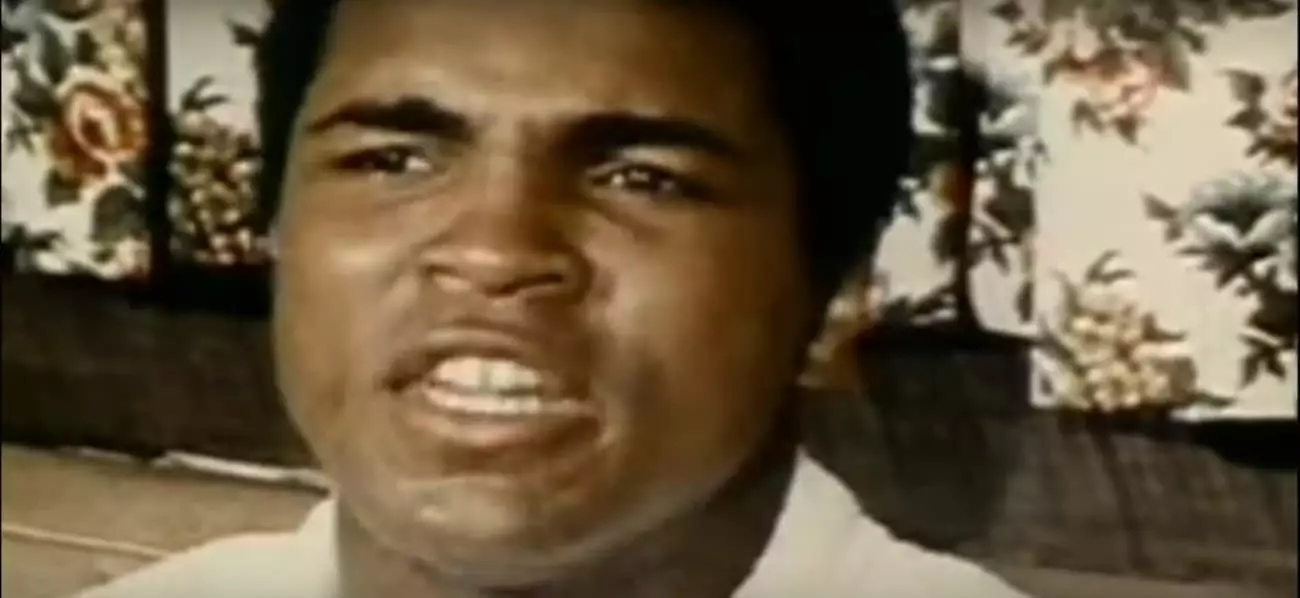In March of this year, a significant piece of boxing history came to light when the iconic satin white shorts worn by Muhammad Ali during his legendary bout against Joe Frazier were up for auction. Initially expected to fetch around $6 million, these shorts encapsulate not just the material legacy of the sport but also the intense rivalry between two of boxing’s greatest figures. Their third and final encounter, which took place almost 49 years ago in Manila, Philippines, remains a defining moment not just for the fighters but for the sport itself. Both men did not merely compete that day; they laid bare their souls, enduring an arduous 14 rounds where pain met determination and spirit clashed with technical prowess.
This bout wasn’t just about claiming the World Heavyweight Title; it symbolized the culmination of personal vendettas deep-rooted in animosity and competitive spirit. The stakes were higher than a mere championship belt; it was a fight of pride, of legacy, and of proving oneself against the fiercest rival. While Ali entered the ring boasting an impressive record of 48 wins and two losses, he underestimated Frazier, believing him to be a shadow of his former self. Conversely, Frazier, determined to prove his mettle, trained with unparalleled rigor, channeling his disdain for Ali into a raw, relentless pursuit of victory.
The fight began with Ali showcasing his signature agility, eager to impose his will early. However, Frazier’s tenacity shattered expectations. He absorbed punches that would have grounded lesser men and, remarkably, turned the tide of the battle, launching a furious onslaught that particularly targeted Ali’s body. Rounds 6 through 10 were marked by Frazier’s ability to go toe-to-toe with Ali, marking a period where the latter appeared perilously close to submitting to fatigue and injury. Ali’s bravado was put to the test as he faced relentless assault, each punch a painful reminder of the limits of endurance.
As the rounds progressed, Ali’s near-quitting during the tenth round highlighted the psychological and physical toll exacted by the fight. Yet, displaying the heart that would cement his legacy, Ali dug deep, transcending what was seemingly possible for any athlete to endure. His capacity for resilience bore witness to the sheer grit that characterized not only his career but also the spirit of boxing itself.
It was during the later rounds that Frazier’s face became a victim of his own ferocity; a swollen visage only underscored the brutality of their conflict. The fight came to an abrupt end when Frazier’s trainer, Eddie Futch, made the heart-wrenching decision to prevent his almost-blinded fighter from entering the 15th round. It was a decision laced with the knowledge that the bout had already become a testament to their prowess—a brutal showcase that transcended mere competition.
As Ali stood, exhausted yet triumphant, only to collapse moments later, a narrative ensued far beyond the physical accomplishments. His slight acknowledgement of victory, the raised arm signaling triumph turned to defeat, solidified a saga that would echo through generations. Frazier, too, would forever carry the weight of this rivalry, often claiming his position as the better fighter, a statement infused with the resonant pain of competitive loss.
Ownership of Ali’s shorts now rests with someone who, it is hoped, understands the reverence these garments carry—an appreciation not merely for the fight itself and its spectacular moments but for the human journeys that each fighter undertook. The bout in Manila served as the culmination of two extraordinary careers, yet it marked a regretful turn. Both fighters, arguably past their prime, continued to step into the ring well beyond this fateful encounter. The question lingers: should they have concluded their legacies on that grand stage in the Philippines, forever immortalized in the annals of boxing history?
The epic rivalry between Ali and Frazier remains a stark reminder of the visceral passion that boxing evokes. It transcended the sport, drawing in a global audience captivated by the raw human experience exhibited through each round. The fight was far more than a spectacle; it was a exploration of the limits of human spirit and endurance, creating an indelible impact that time cannot erase.

